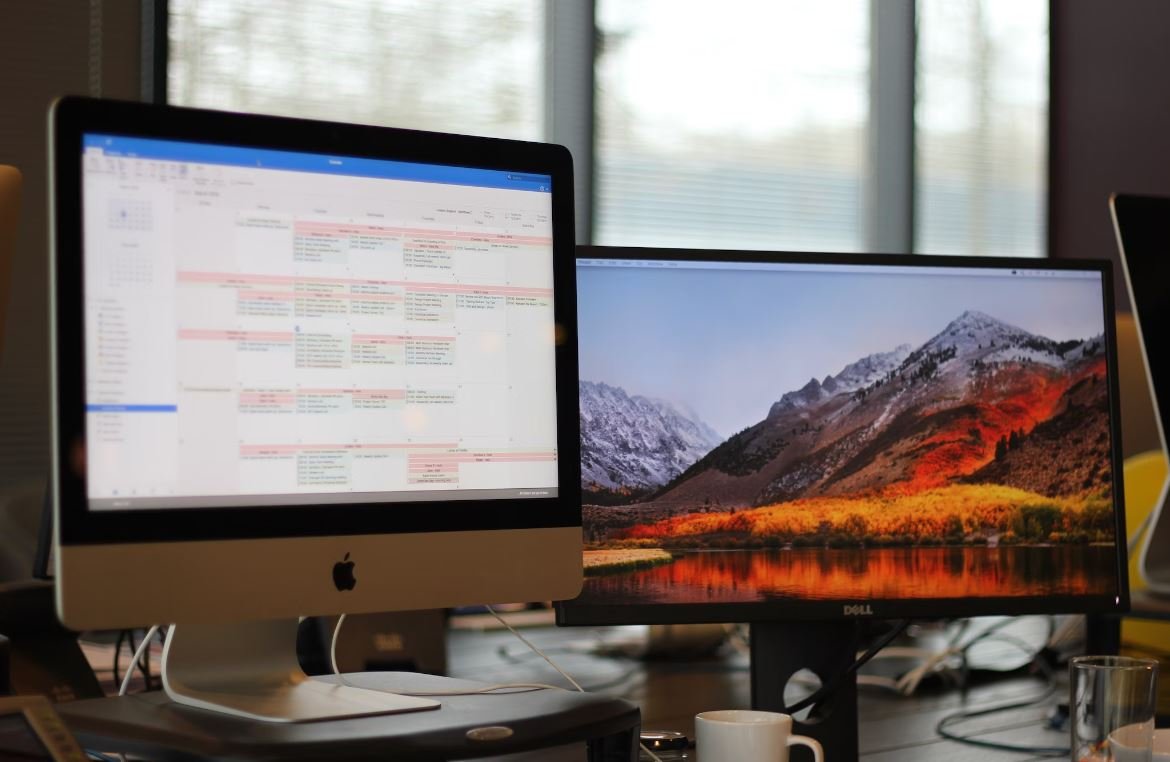Will AI Take Over Architecture?
In recent years, artificial intelligence (AI) has made impressive advancements and is now being integrated into various industries. Architecture, being a creative field, has been both intrigued and wary of the potential impact of AI on the profession. This article explores the current and future role of AI in architecture.
Key Takeaways:
- AI holds the potential to revolutionize the architecture industry.
- AI can assist architects in design optimization, project management, and innovative problem-solving.
- The role of architects is unlikely to be completely replaced by AI, but rather augmented.
- Ethical considerations and human oversight are crucial in utilizing AI in architecture.
**Artificial intelligence** has the ability to simulate human intelligence and perform tasks that typically require human cognition and decision-making. In architecture, AI can significantly impact the design process by assisting architects in various regards. *By automating repetitive tasks and performing complex calculations, AI can free up architects’ time and enhance their creativity.*
AI algorithms can analyze vast amounts of data to generate optimized design options. Architects can leverage AI-powered design tools to explore numerous possibilities quickly and efficiently. Moreover, AI can evaluate the potential performance and energy efficiency of different design alternatives, aiding in creating sustainable buildings. This integration of AI into the design process can lead to more innovative and efficient architectural solutions.
The Role of AI in Project Management:
An intriguing aspect of AI in architecture is its potential to streamline project management. AI-based systems can analyze project schedules, resource allocation, and dependencies, enabling architects to identify potential bottlenecks and optimize project timelines. *By predicting and mitigating risks, AI can enhance project efficiency and reduce delays.*
AI-assisted project management systems can also improve communication and collaboration among project stakeholders. Chatbots and digital assistants can handle routine project queries, freeing up architects’ time for more critical tasks. Additionally, AI can facilitate real-time data analysis, allowing architects to make informed decisions based on accurate information.
The Future of Architects in a World with AI:
While there are concerns that AI might replace architects, the reality is more nuanced. It is unlikely that AI will completely eliminate the role of architects, but rather redefine and augment it. AI can handle repetitive and time-consuming tasks, enabling architects to focus on higher-level design thinking and creativity. Architects will become facilitators, harnessing the power of AI to enhance their designs and collaborate with intelligent systems. *The future will likely see architects and AI working hand in hand to push the boundaries of architectural innovation.*
Considerations and Ethical Implications:
As AI becomes more integrated into architecture, ethical considerations become paramount. Architects need to ensure that AI systems prioritize safety, sustainability, and social impact. Human oversight is crucial to prevent unconscious bias or errors in AI algorithms. Additionally, data privacy and security must be safeguarded to protect client information and intellectual property.
Table 1: Potential Areas of AI Integration in Architecture
| Area | Description |
|---|---|
| Design Optimization | Using AI algorithms to generate and evaluate design options. |
| Project Management | AI-based systems for efficient project planning and resource allocation. |
| Sustainability | Using AI to assess energy efficiency and environmental impacts. |
Table 2: Benefits of AI Integration in Architecture
| Benefit | Description |
|---|---|
| Increased Efficiency | Automation of repetitive tasks and faster design iterations. |
| Creative Exploration | AI-enabled tools to rapidly generate and explore design possibilities. |
| Improved Sustainability | AI’s ability to assess energy efficiency and environmental impact aids in creating sustainable buildings. |
Table 3: Ethical Considerations in AI Integration
| Consideration | Description |
|---|---|
| Unconscious Bias | Ensuring AI systems do not perpetuate social biases or inequalities. |
| Data Privacy | Safeguarding client information and intellectual property. |
| Human Oversight | Having human experts review and validate AI-generated outputs. |
Overall, the integration of AI in architecture offers immense potential for innovation and efficiency. Architects must embrace AI as a valuable tool rather than fearing it as a threat. By leveraging AI’s capabilities while ensuring ethical considerations and human oversight, the collaboration between architects and AI can revolutionize the field, creating sustainable, aesthetically pleasing, and technologically advanced spaces.

Common Misconceptions
AI Will Replace Architects Completely
One common misconception is that AI will completely replace architects, rendering their expertise and skills obsolete. However, this is not the case. While AI has the potential to automate certain tasks and streamline processes, it cannot replicate the creative thinking, design vision, and human touch that architects bring to projects.
- AI can assist in generating design options and conducting complex simulations.
- Architects integrate AI tools to enhance efficiency and accuracy in data analysis.
- Collaboration between AI software and architects can lead to more innovative and optimized designs.
AI Will Result in the Loss of Jobs
Another misconception is that AI will lead to significant job losses within the architecture industry. While it is true that certain routine tasks could be automated, the introduction of AI can also create new job opportunities and redefine the roles of architects.
- Architects can focus more on higher-level design thinking and creativity.
- New job roles can emerge, such as AI specialists or data analysts working in architectural firms.
- AI can augment the capabilities of architects, enhancing their productivity rather than replacing them.
AI Can Fully Design Buildings Without Human Input
Some people mistakenly believe that AI has the capability to independently design complex buildings without any human input. However, the reality is that AI operates based on the data and input it receives, which is initially provided by humans. AI acts as a tool to assist and enhance the design process, but it still requires human creativity and decision-making.
- AI can analyze vast amounts of data and generate design options based on specified criteria.
- Human input is necessary to set the project goals, guidelines, and specific requirements.
- Architects make informed decisions based on AI-generated insights and adapt the designs accordingly.
AI Will Result in Poor Design Quality
There is a misconception that AI-generated designs will lack the quality and uniqueness that human architects bring to projects. However, AI can actually contribute to improved design quality by helping architects explore more possibilities, optimize energy efficiency, and reduce human error.
- AI can assist in performing intricate calculations and simulations to ensure structural integrity.
- Architects can leverage AI algorithms to identify design flaws and fine-tune their concepts.
- AI can analyze vast design databases to inspire architects and help them innovate.
AI Will Lead to a Homogeneous Built Environment
Some believe that the integration of AI in architecture will result in a homogenous built environment, as AI algorithms may favor certain design trends or formulas. However, architects using AI tools have the ability to adapt and evolve these algorithms to create diverse and unique architectural solutions.
- Architects play a pivotal role in shaping AI algorithms to reflect various design styles.
- The creativity of architects ensures that AI-generated designs are not limited to a single aesthetic or approach.
- AI can aid architects in exploring new design possibilities and unconventional solutions.

The Rise of AI in Architecture
Artificial Intelligence (AI) has revolutionized various sectors, and architecture is no exception. With AI technologies becoming increasingly advanced, there is a growing debate about whether AI will take over the field of architecture. This article explores the potential implications of AI in architecture and presents interesting data to shed light on this topic.
Table 1: Increased Efficiency
AI-powered architectural software can significantly enhance efficiency in the design process, reducing time and costs.
Table 2: Improved Sustainability
AI algorithms can optimize energy consumption, integrate renewable resources, and generate more sustainable architectural designs.
Table 3: Enhanced Safety Measures
AI can analyze and predict potential safety hazards during the construction phase, thereby minimizing accidents and ensuring worker safety.
Table 4: Enhanced Building Performance
By leveraging AI, architects can develop smarter buildings that adapt to occupants’ needs, reducing energy waste and enhancing overall performance.
Table 5: Customized User Experience
Through AI technologies, architects can create personalized architectural solutions tailored to individual preferences and requirements.
Table 6: Preservation of Cultural Heritage
AI can assist architects in the preservation and restoration of historical architectural sites, ensuring their longevity and cultural significance.
Table 7: Collaborative Design Process
AI tools enable architects to collaborate seamlessly with engineers and other professionals, enhancing interdisciplinary teamwork.
Table 8: Generating Innovative Concepts
Using AI algorithms, architects can explore unconventional design possibilities that push the boundaries of traditional architectural norms.
Table 9: Ethical Considerations
The rise of AI raises ethical questions regarding autonomy, privacy, and the impact of automated decision-making on architectural design.
Table 10: The Role of Architects
Despite AI’s potential, architects will continue to play a vital role in the design process by infusing creativity, human touch, and contextual understanding.
In conclusion, the integration of AI in architecture presents both opportunities and challenges. While AI can enhance efficiency and contribute to sustainable, safe, and innovative designs, architects need to address ethical considerations and ensure their unique contributions are not compromised. The future of architecture lies in harnessing the power of AI while preserving the artistic, cultural, and human aspects of the profession.
Frequently Asked Questions
Will AI replace architects in the future?
While AI has the potential to assist architects in various tasks, it is unlikely to completely replace them. Architecture involves artistic creativity, problem-solving skills, and human touch which AI currently lacks.
How can AI be utilized in architecture?
AI can be utilized in architecture for tasks such as generating design options, conducting simulations, optimizing energy usage, enhancing building performance, and automating repetitive tasks.
What are the advantages of using AI in architecture?
Using AI in architecture can lead to increased efficiency, improved accuracy in design analysis, faster decision-making, reduced cost, enhanced sustainability, and the ability to explore innovative design solutions.
Can AI create unique and innovative architectural designs?
AI can assist in generating design options, but the ability to create unique and innovative architectural designs still heavily relies on human input and creativity. AI can inspire architects and provide insights, but the final design decisions are usually made by humans.
What are the limitations of AI in architecture?
AI currently lacks the ability to understand complex contextual factors, cultural influences, and human emotions that often play a significant role in architectural design. It also struggles with the interpretation of subjective aesthetics and the integration of multiple design elements.
Will AI reduce job opportunities for architects?
AI may change the nature of certain tasks within architecture, but it also has the potential to create new job opportunities. Architects can focus more on complex problem-solving, creativity, and the human aspect of design, while AI can handle time-consuming and repetitive tasks.
How can architects adapt to the rise of AI?
Architects can adapt to the rise of AI by embracing technological advancements, learning how to effectively incorporate AI tools into their workflows, and focusing on honing their creativity, critical thinking, and problem-solving skills that AI cannot replicate.
What ethical concerns are associated with AI in architecture?
Some ethical concerns associated with AI in architecture include issues related to privacy, data security, biases in algorithmic decision-making, transparency of AI systems, and the potential reduction of human involvement in the design process.
What does the future hold for AI in architecture?
The future of AI in architecture is likely to involve a closer integration between AI tools and human designers. Advanced AI algorithms may continue to assist architects in areas such as data analysis, simulation, and optimization, while leaving the final creative decisions and human touch to the architects.
How does AI impact architectural sustainability?
AI can contribute to architectural sustainability by analyzing and optimizing various aspects of building performance, such as energy usage, natural lighting, and thermal comfort. It can help architects design more environmentally friendly buildings and reduce the environmental impact of the built environment.





